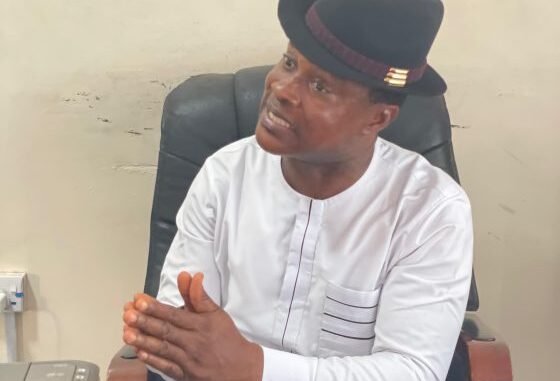
By Divine Sam
The Edwin Woko-led faction of the Peoples Democratic Party (PDP) in Rivers State has strongly responded to comments made by Abdullahi Ganduje, the national chairman of the All Progressives Congress (APC), about the party’s intention to win the Rivers State governorship election in 2027.
Ganduje, during the inauguration of the Tony Okocha-led APC state executive in Port Harcourt, emphasized that capturing the Rivers State Government House would be a major priority for APC in the 2027 elections. He presented the party’s ambition as a top goal for the upcoming election cycle.
In reaction, Edwin Woko, who leads a faction of PDP in Rivers, rejected Ganduje’s remarks, asserting that there is “no vacancy” in the state for the APC in 2027. Woko emphasized that the people of Rivers State are determined to ensure that Governor Siminalayi Fubara’s bid for a second term will be successful. He further criticized the APC, noting that the people of Rivers had already rejected the party and would continue to do so, accusing APC of enacting unfriendly policies toward the people.
Woko also expressed confidence that despite internal challenges within the PDP, Governor Fubara would contest the 2027 elections under the PDP banner. He dismissed attempts by what he referred to as “polyandrist agents” within the PDP, likely implying party members with divided or conflicting loyalties, suggesting that these members would soon be irrelevant.
Furthermore, Woko condemned the practices that took place during the 2020 Edo State gubernatorial election, specifically mentioning electoral manipulation and security forces being used to distort voting. He vowed that such tactics would not succeed in Rivers State, emphasizing that any election in the state must be fair, transparent, and based on the will of the people.
Woko’s faction also raised concerns regarding the legality of the July 2024 PDP congress in Rivers, which produced the Chukwuemeka-led state executive. Woko and others involved in a legal dispute over the congress claim it was conducted in violation of a court order and thus should be considered illegal.